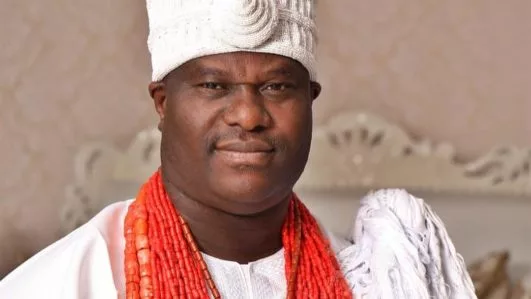Top 5 Most Powerful Kings in Nigeria (2026)
The most powerful kings in Nigeria hold significant positions in the country, wielding influence and commanding respect from their subjects and the wider population. These kings are traditional rulers and act as custodians of the culture and traditions of their respective tribes and regions. They have retained their power and influence despite the shift in Nigeria’s political system and continue to play advisory roles in governance.
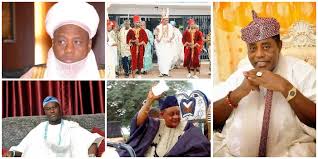
Below is a list of the top 5 most powerful kings in Nigeria this 2023, based on their historical significance and present-day influence.
ALAAFIN OF OYO

Alaafin of Oyo and his wives picture
The Alaafin of Oyo, Oba Lamidi Olayiwola Adeyemi III, holds the prestigious position of the most powerful and influential king in Nigeria. Leading the Oyo Empire, he was not only a traditional ruler but also a symbol of civilization in the Yoruba land. With an impressive 50-year reign, Oba Adeyemi III has left a significant impact on the history and present of the Oyo Empire. His influence extends far beyond Oyo State, as he is recognized as a prominent figure in Nigerian politics.
Late Oba Lamidi Olayiwola Adeyemi III was revered for his custodianship of the culture and traditions of the Yoruba people. As the Alaafin of Oyo, he commanded respect and admiration from his subjects and the wider Nigerian population. His leadership and advisory roles in governance showcase his enduring power and influence.
The Alaafin of Oyo’s reign is a testament to the deep-rooted cultural heritage and traditional systems of governance in Nigeria. His prominence as the most powerful king in Nigeria solidifies his place as a notable figure in Nigerian history and showcases the continued relevance of traditional rulers in shaping Nigerian society.
EMIR OF KANO
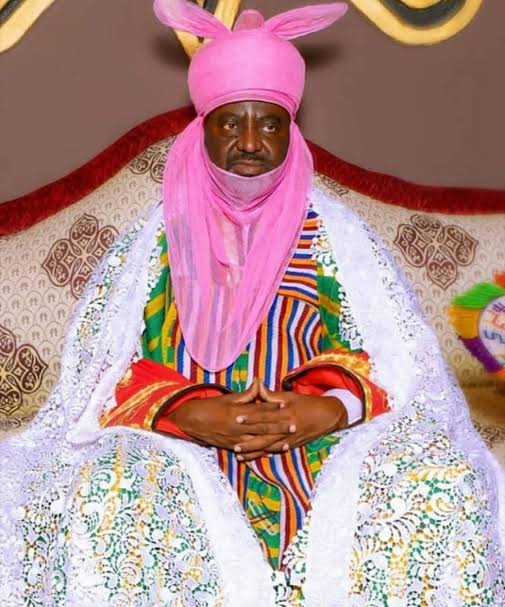
The Emir of Kano, Aminu Ado Bayero, holds a powerful kingship position in Nigeria. He is renowned for his influence and authority as a traditional ruler, commanding respect and admiration from both his subjects and fellow Nigerians. Aminu Ado Bayero ascended to the throne on March 9, 2020, following in the footsteps of his father, Alhaji Dr Ado Abdullahi Bayero.
As the Emir of Kano, Aminu Ado Bayero’s words carry weight within his jurisdiction, especially among the Muslim population. His previous role as the Governor of the Central Bank of Nigeria further adds to his prominence and influence, making him a significant figure in Nigerian politics.
The ascendancy of Aminu Ado Bayero to the position of Emir of Kano solidifies his status as a first class king in Nigeria. His leadership and dedication to serving his people position him as a powerful traditional ruler, ensuring the continued relevance and significance of the Emir of Kano in both cultural and political spheres.
SULTAN OF SOKOTO
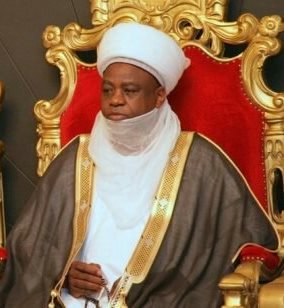
Sultan of Sokoto – Sa’ad Abubakar
The Sultan of Sokoto, Muhammadu Sa’ad Abubakar, holds an influential kingship position in Nigeria. As the spiritual leader of Northern Nigeria Muslims, he plays a significant role in shaping religious practices and beliefs. His authority extends beyond his role as a traditional ruler, as he is also the head of the Qadiriyya Sufi order, the Tijanyya Sufi order, the Jama’atu Nasril Islam, and the Nigerian Supreme Council for Islamic Affairs.
The Sultan of Sokoto’s role as a spiritual leader gives him immense respect and influence within the Muslim community in Nigeria. He is responsible for guiding and advising Muslims on matters of faith and religious practices. His position also empowers him to engage with political leaders and advocate for the interests of the Muslim population in Nigeria.
With his deep knowledge of Islamic teachings and traditions, the Sultan of Sokoto acts as a unifying figure for Muslims across the country. His leadership and guidance contribute to the preservation and promotion of Islamic values and principles in Nigerian society. The Sultan of Sokoto’s role as an influential king in Nigeria strengthens the cultural and religious fabric of the nation.
OONI OF IFE
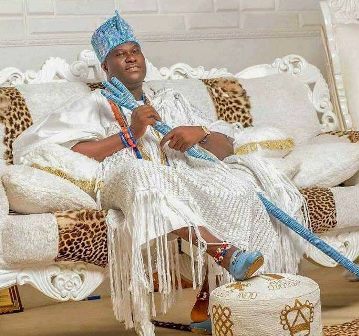
Ooni of Ife on his throne
The Ooni of Ife, Adeyeye Enitan Ogunwusi, is a powerful and influential traditional ruler in Nigeria. His role extends beyond mere kingship, as he is actively involved in the cultural development and preservation of the Yoruba heritage. As the 51st Ooni of Ife, Ogunwusi has made significant efforts to promote the rich traditions and values of the Yoruba people.
Under his leadership, Ile-Ife has witnessed remarkable transformation and has become a center for cultural activities and tourism. Ogunwusi’s commitment to cultural development has led to the establishment of the Ife Grand Resort, which showcases the artistic and historical artifacts of the Yoruba kingdom.
The Ooni of Ife continues to foster unity and cooperation among the Yoruba people, promoting peace and harmony within the community. His philanthropic endeavors have touched the lives of many, with initiatives aimed at empowering the youth and uplifting the less privileged in society. Ogunwusi’s cultural influence and dedication to the progress of his people have solidified his position as a powerful traditional ruler in Nigeria.
DEIN OF AGBOR
The Dein of Agbor, Benjamin Ikechukwu Kaegborekuzi, holds a powerful kingship position in Nigeria. Ascending the throne at the age of two, he gained recognition as the world’s youngest monarch in the Guinness Book of Records. The Dein of Agbor’s lineage can be traced back to Omini from Agueri, and his reign has brought stability and development to the Agbor kingdom. His position as a traditional ruler carries significant influence within his community and beyond.
The Dein of Agbor, despite his young age at ascension, has demonstrated wisdom and leadership in his role as a powerful king in Nigeria. He has actively engaged in efforts to promote the welfare and progress of his people, implementing developmental projects and initiatives. Additionally, the Dein of Agbor has been a strong advocate for the preservation and celebration of Agbor’s rich cultural heritage.
As a respected traditional ruler, the Dein of Agbor plays a pivotal role in fostering unity and harmony among the people of his kingdom. His leadership qualities and commitment to the well-being of his subjects have earned him admiration and respect not only within Agbor but also in the wider Nigerian society. The Dein of Agbor, Benjamin Ikechukwu Kaegborekuzi, stands as a testament to the enduring influence and relevance of traditional rulers in Nigeria.
CONCLUSION
Traditional rulers in Nigeria, including the most powerful kings, play a crucial role in preserving the country’s rich culture and traditions. Despite the shift in Nigeria’s political structure, these influential kings continue to hold significant sway within their communities and the broader Nigerian society.
With their deep-rooted historical significance, these traditional rulers represent the enduring power of the traditional systems of governance in Nigeria. They act as custodians of Nigerian culture, preserving and promoting customs that have been passed down through generations.
The influence of these first class kings extends beyond their local jurisdictions, with their opinions and advice carrying weight in matters of governance and policy-making. Their prominence reflects the respect and reverence they command from their subjects and the wider population.
In a rapidly changing world, the role of traditional rulers remains steadfast, providing a sense of stability and continuity. Being a king or traditional ruler in Nigeria is not merely a symbol, but a living embodiment of Nigerian heritage and identity.
